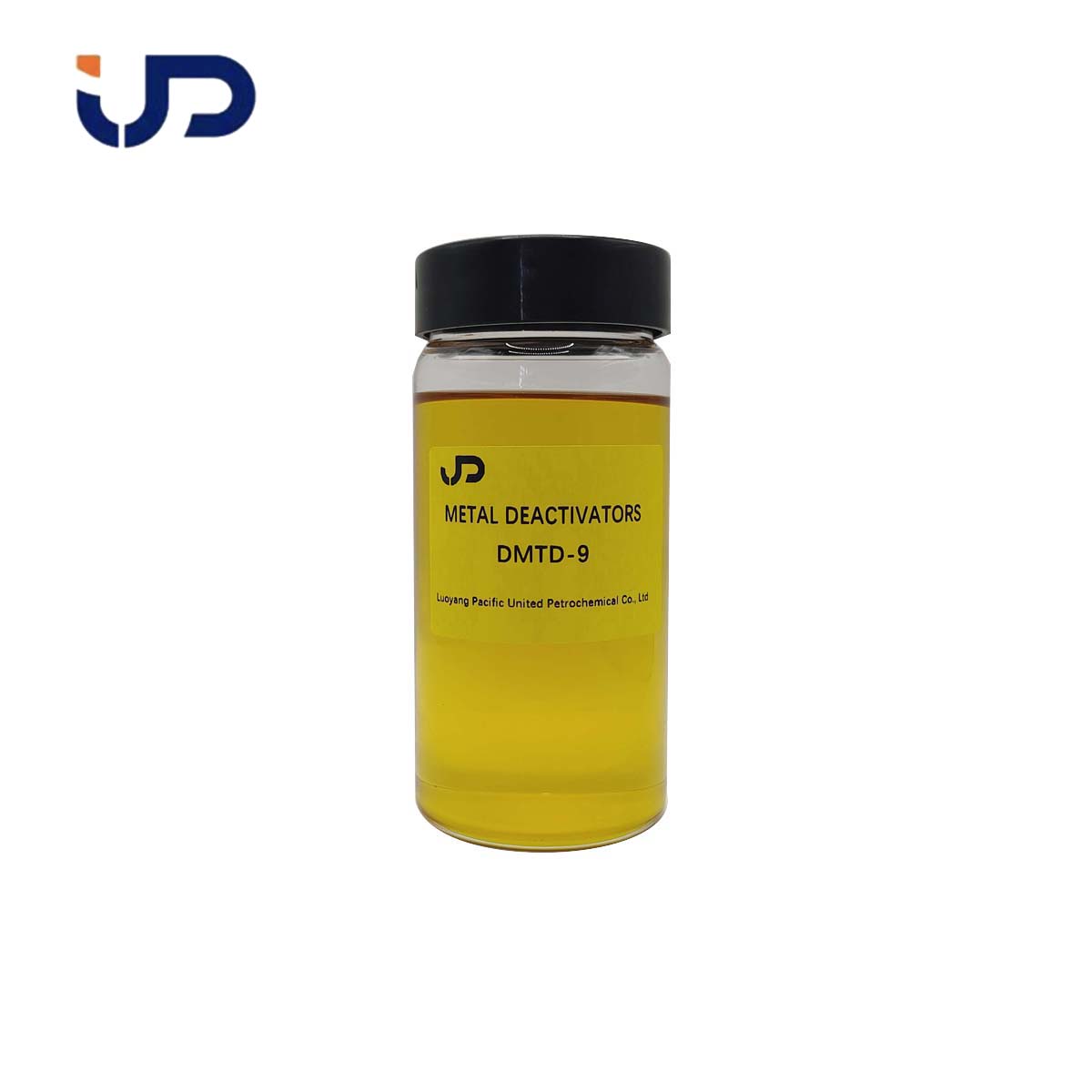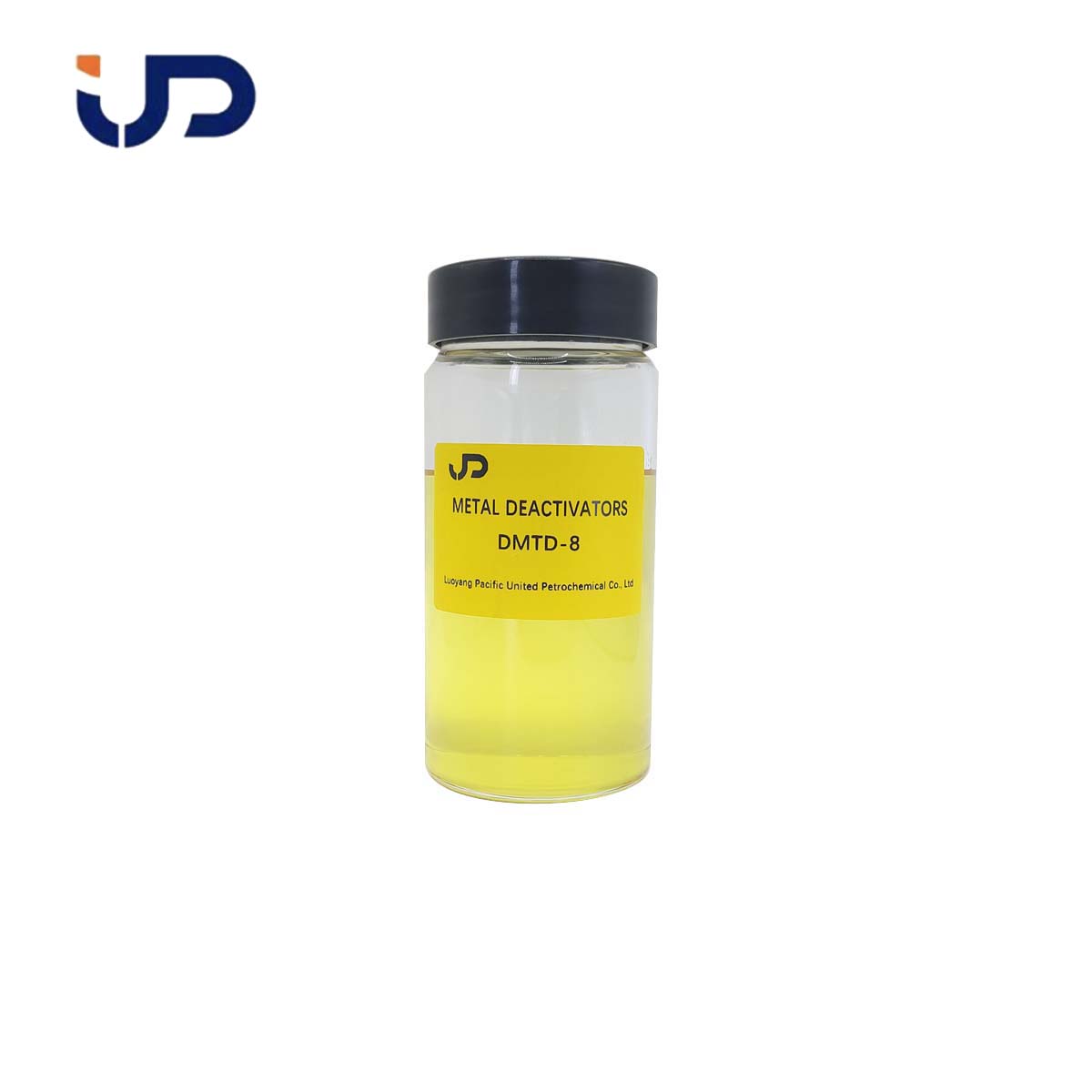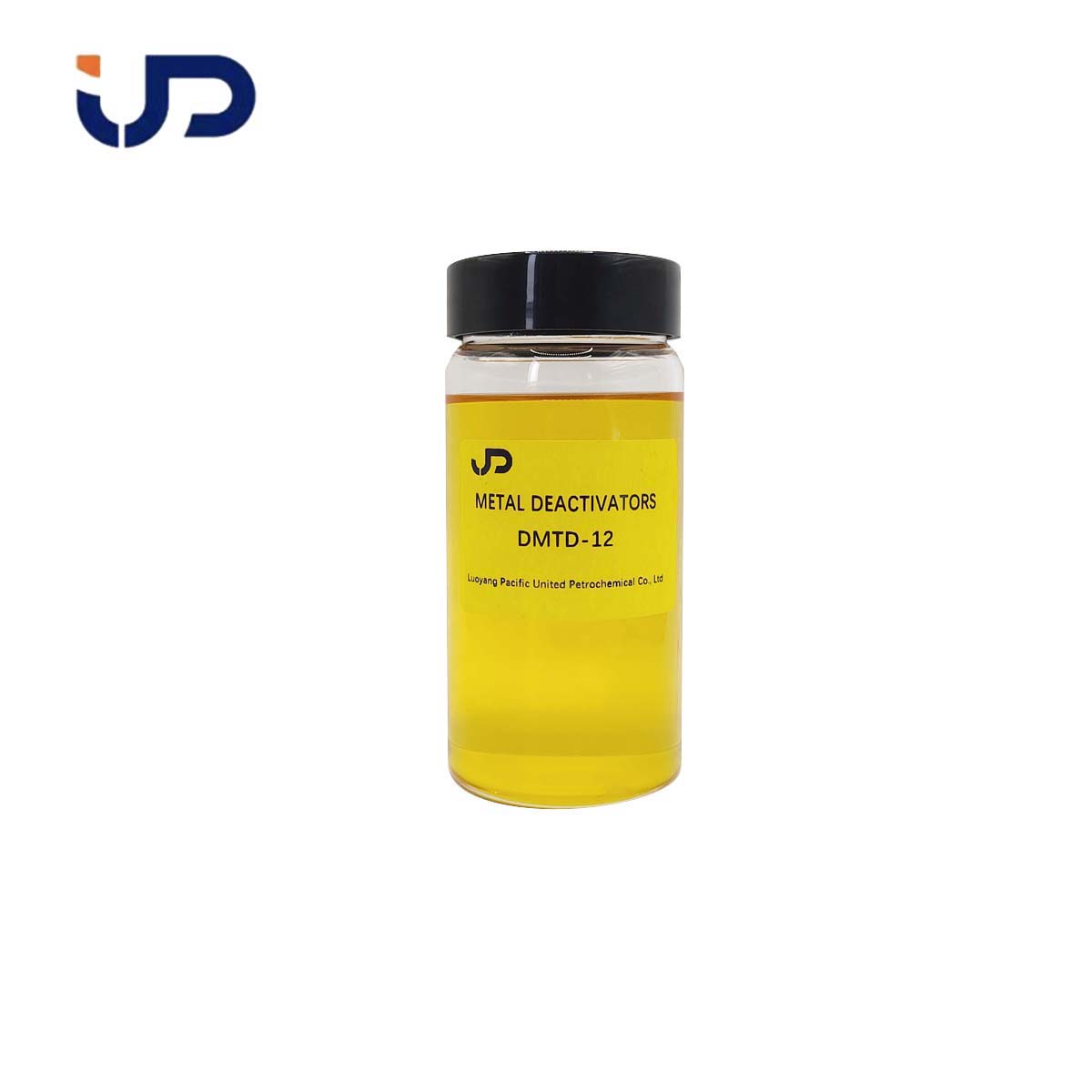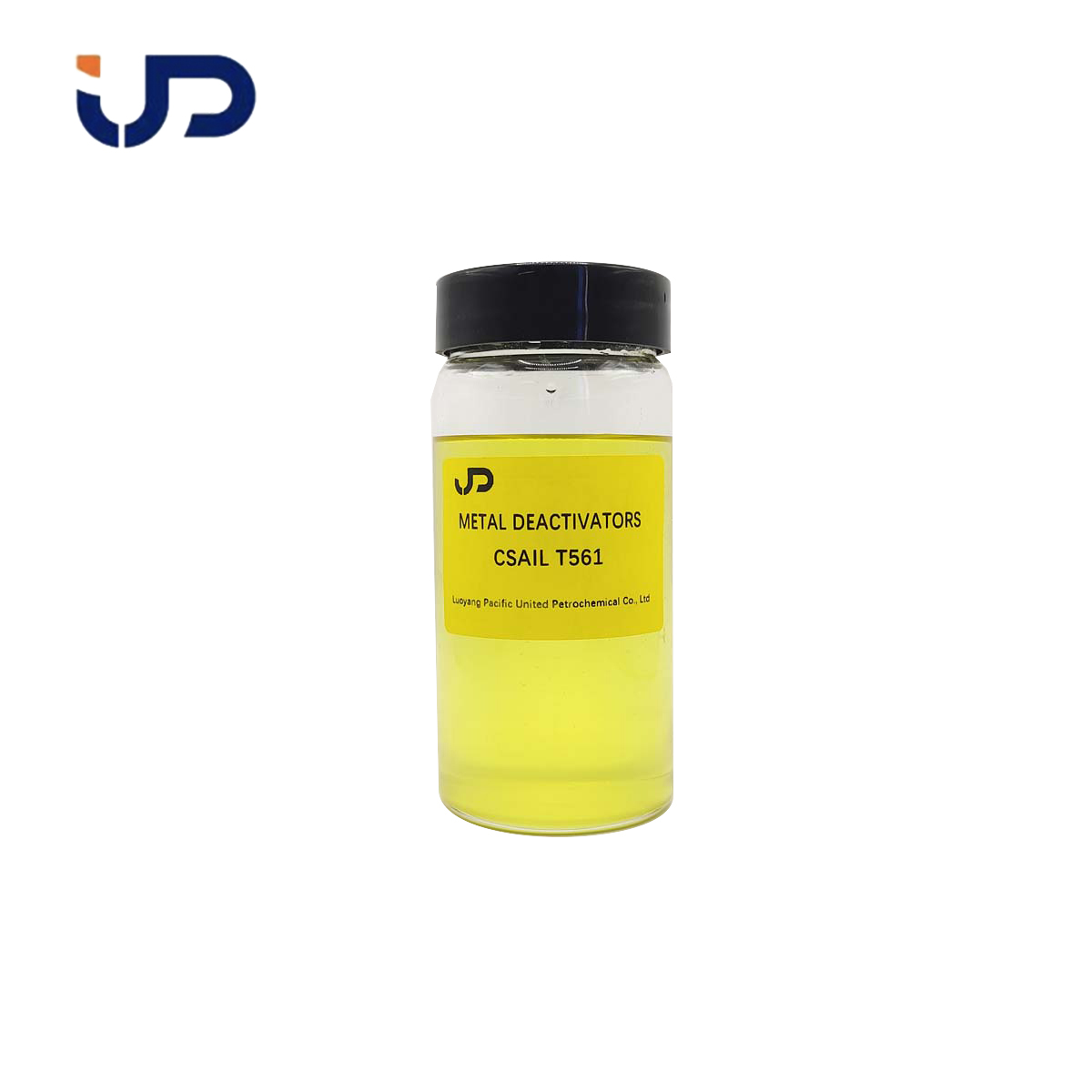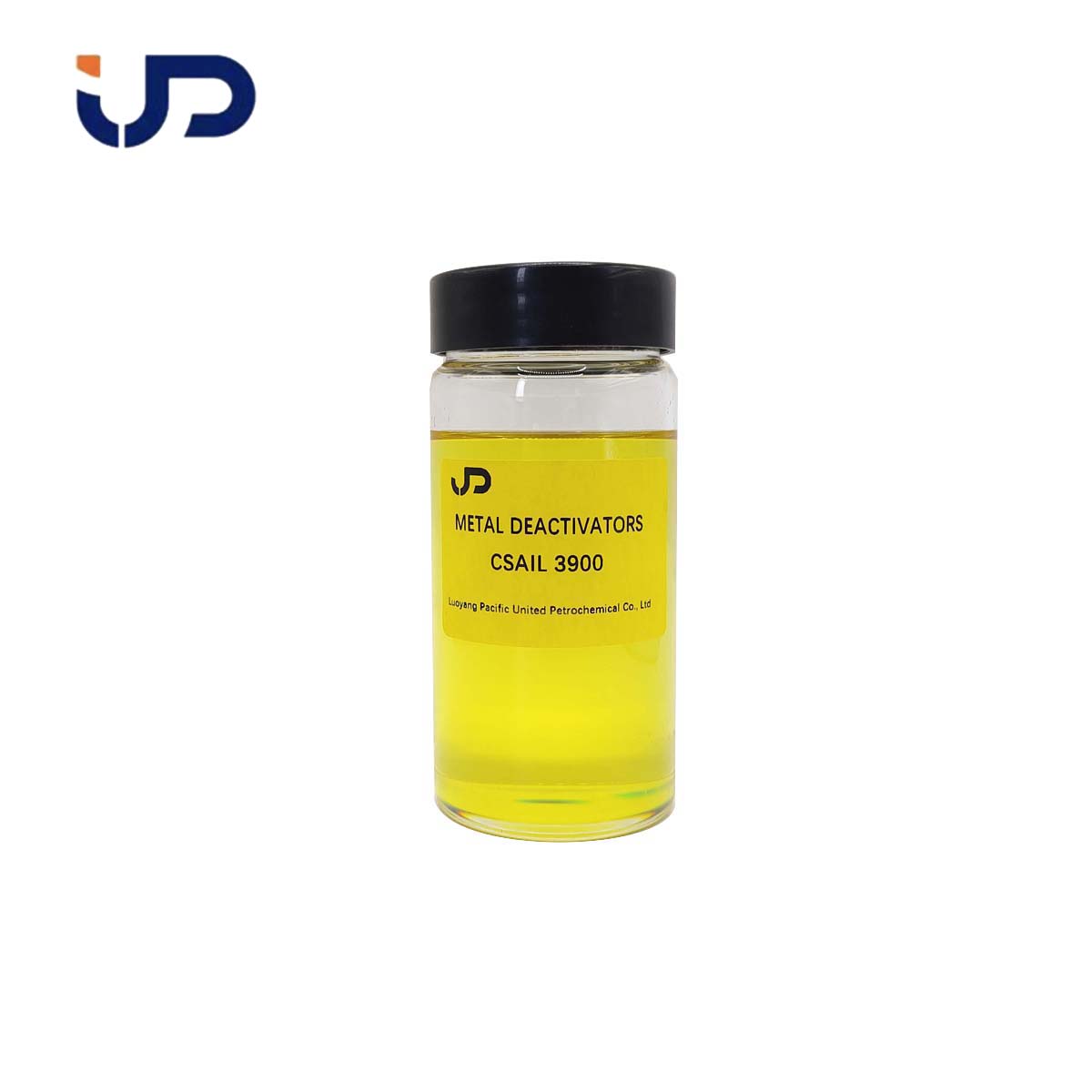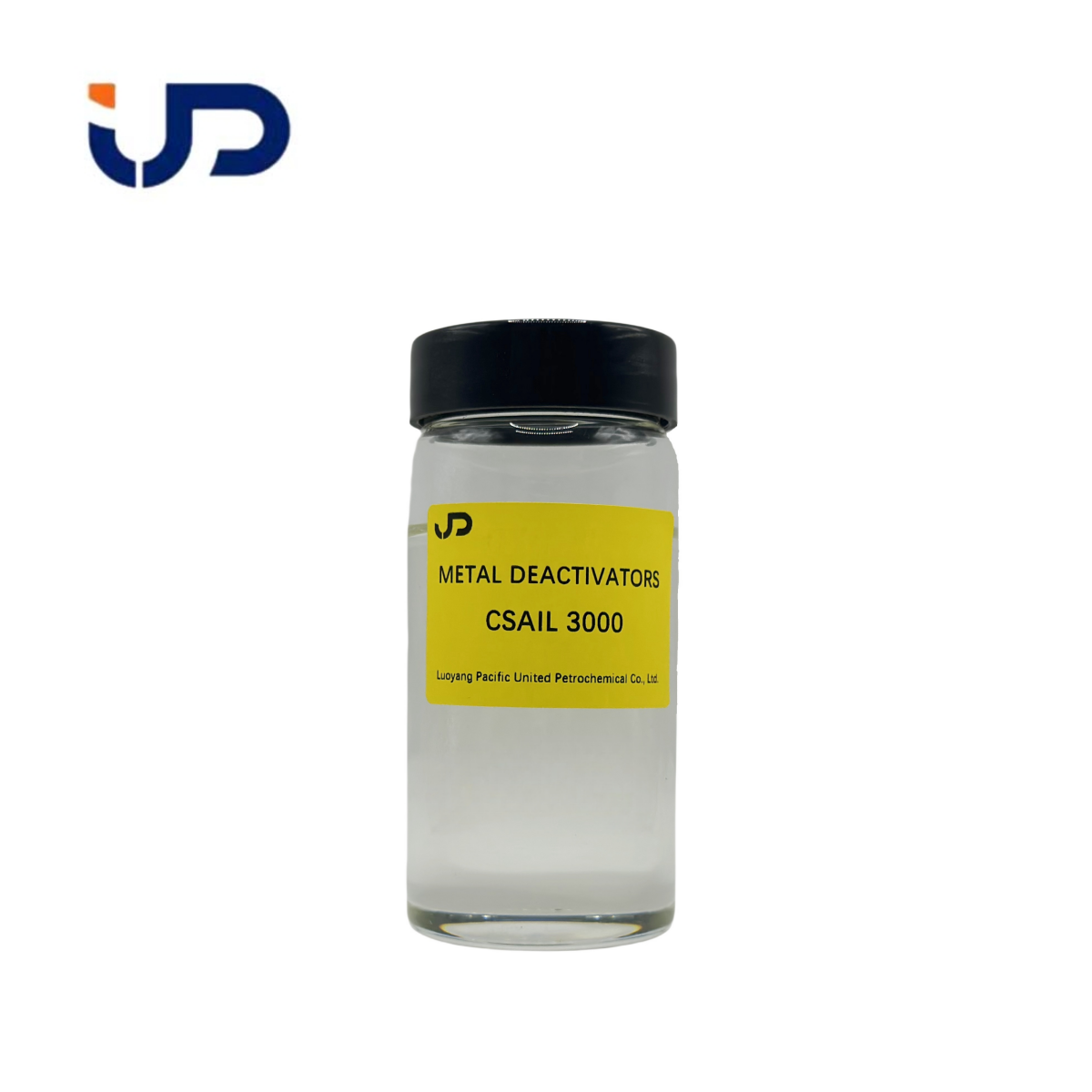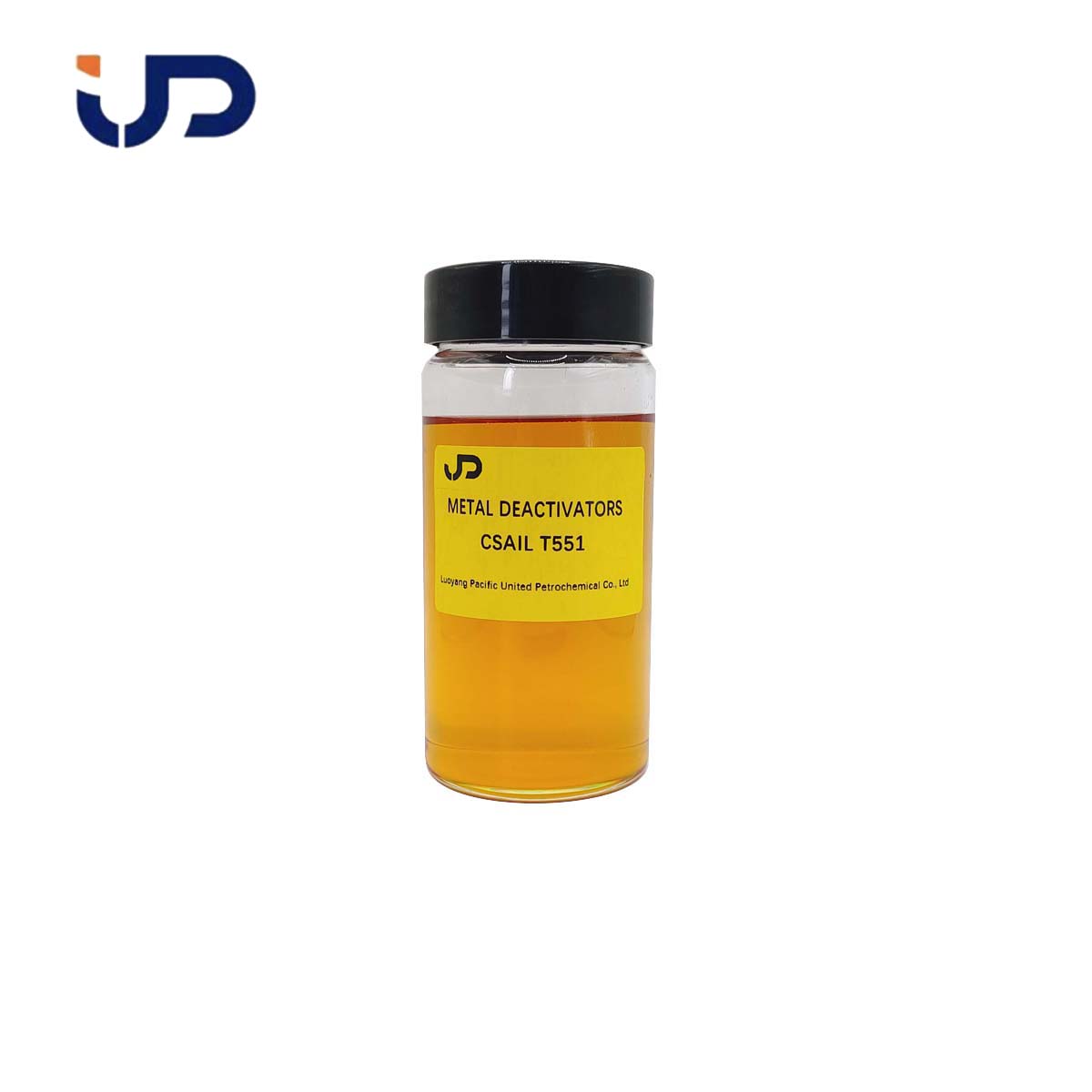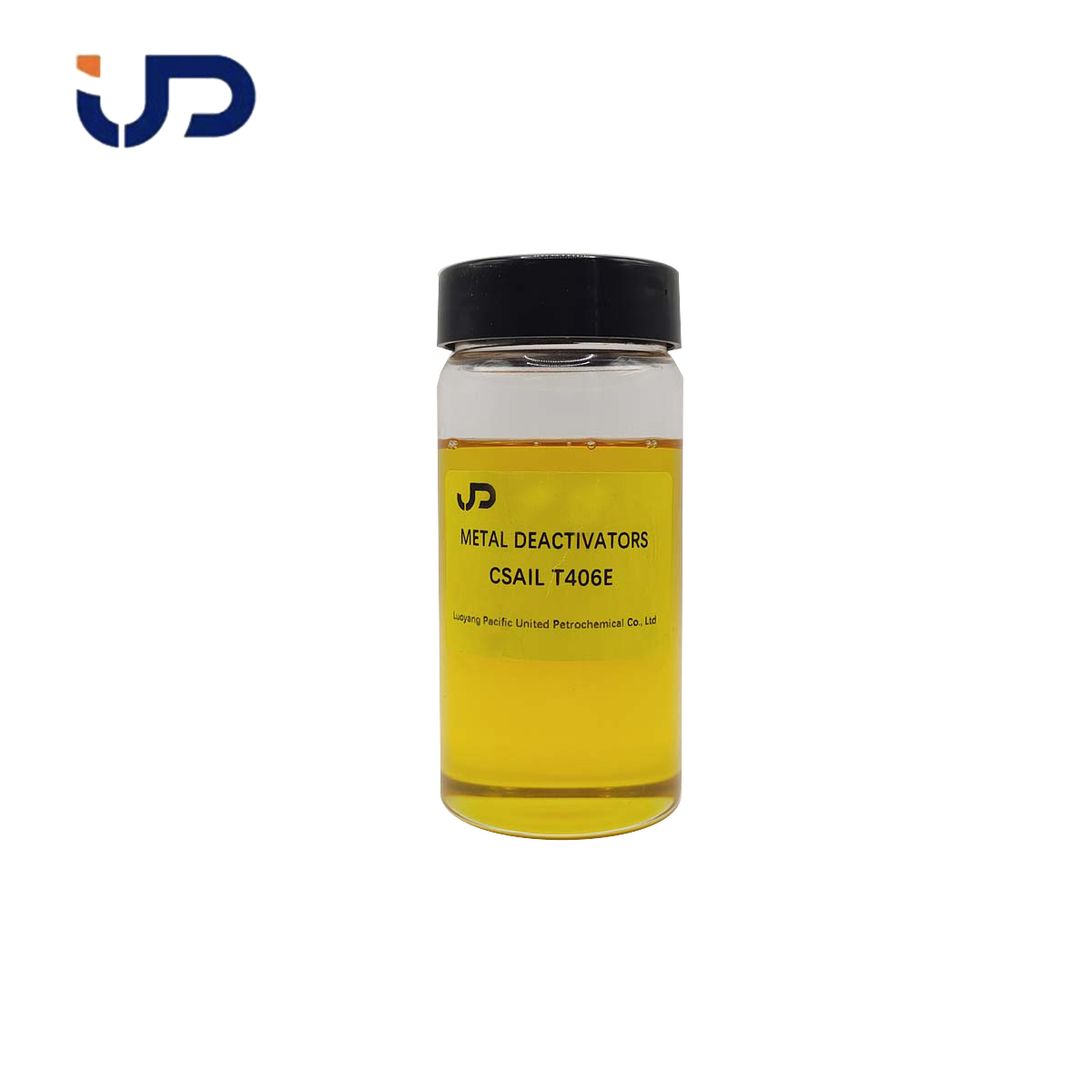UNPChemicals Metal deactivator additives, including thiadiazole derivatives and triazole derivatives, independent production of 2, 5-dimercapto-1,3, 4-thiadiazole (DMTD). Forming a protective film on the metal surface provides excellent copper corrosion inhibition, and can also inhibit the catalytic oxidation of metal ions to oil products, extending the service life. In addition, based on the unique chemical structure of DMTD, its derivatives also give the product with antioxidant, anti-wear and other functions, widely used in various lubricating oils and metal working fluids.
Top UNPchemicals Metal Deactivators
Popular UNPChemicals Metal Deactivators
| Triazole derivatives CSAIL 3000 |
| Benzotriazole derivatives CSAIL T551 |
| Aliphatic amine bisazole derivatives CSAIL T406E |
Thiadiazole tert-nonyl mercaptan condensate DMTD-9 CAS 91648-65-6
Thiadiazole tert-nonyl mercaptan condensate DMTD-9 CAS number 91648-65-6. As a lubricant, fuel or metalworking fluid additive, it can be used for various automotive and industrial lubricating oils
Read More Get A QuoteThiadiazole octyl mercaptan condensate DMTD-8 CAS 13539-13-4
Thiadiazole octyl mercaptan condensate DMTD-8 with CAS 13539-13-4, is an effective additive for various applications due to its corrosion inhibition, metal deactivation, and anti-wear properties.
Read More Get A QuoteThiadiazole tert-dodecyl mercaptan condensate DMTD-12 CAS 59656-20-1
Thiadiazole tert-dodecyl mercaptan condensate DMTD-12 is a valuable lubricant additive.
Read More Get A QuoteThiadiazole tert-dodecyl mercaptan condensate CSAIL T561 CAS 59656-20-1
CSAIL T561 is a liquid ashless metal deactivator with extreme pressure and oxidation resistance effects.
Read More Get A QuoteMethylbenzotriazole TTA derivatives CSAIL 3900 CAS 94270-86-7
CSAIL3900, a methyl benzotriazole derivative, is a liquid oil soluble corrosion inhibitor and metal passivator, which is widely used in various lubricating oils and metal working fluids.
Read More Get A QuoteTriazole derivatives CSAIL 3000 CAS 91273-04-0
CSAIL 3000 is a high-performance chemical additive, specifically designed to serve as a metal deacti
Read More Get A QuoteBenzotriazole derivatives CSAIL T551 CAS 15497-45-7
CSAIL T551 is a high-performance chemical additive formulated from a benzotriazole derivative, designed to enhance the antioxidant capacity of oil products and facilitate their long-term protection ag
Read More Get A QuoteAliphatic amine bisazole derivatives CSAIL T406E
Aliphatic amine bisazole derivatives CSAIL T406E is a Fatty amine diazole derivative, has good antioxidant and copper corrosion inhibition properties, good oil solubility, strong rust resistance.
Read More Get A Quote
What are metal deactivators?
Metal deactivators are a type of chemical additive used to reduce the catalytic effect of metals on the degradation of materials, such as lubricants, fuels, and polymers. They work by forming a thin, protective film on the metal surface, reducing surface oxidation and reactions between metals, and the surrounding media. Metal deactivators are often used to enhance the stability and extend the service life of materials that come into contact with metals, providing better protection against corrosion, reducing metal-induced oxidation, and slowing down degradation.
Features of metal deactivators
Corrosion protection: Metal deactivators help protect metals from corrosion by forming a protective film on the metal surface, reducing the exposure to corrosive environments.
Oxidation resistance: By reducing the catalytic effect of metals, metal deactivators can slow down the oxidative degradation of materials, enhancing their stability and lifespan.
Improved performance: Metal deactivators can help improve the performance of lubricants, fuels, and polymers by reducing metal-induced degradation and minimizing the formation of contaminants and deposits that can negatively affect the system.
Broad applicability: Metal deactivators can be used in various industries and applications, including aviation, automotive, electronics, infrastructure, and energy production.
Types of metal deactivators
Metal deactivators can be broadly categorized into the following types:
Organic: Organic metal deactivators contain nitrogen, sulfur or oxygen donor atoms which form coordinate bonds with the metal ions, reducing their catalytic activity. Examples include benzotriazole, tolyltriazole, and amines.
Inorganic: These metal deactivators consist of inorganic compounds that can react with the metal ions to form stable complexes or compounds. Examples include aluminates, phosphates, and silicates.
The specific type of metal deactivator will depend on the nature of the material being protected, and the type of metal being deactivated.
Applications of metal deactivators
Metal deactivators play a crucial role in various industries and applications by protecting materials from the harmful catalytic effects of metals. They are primarily used to preserve the integrity and stability of materials that come into contact with metals. Some common applications of metal deactivators include:
Lubricants: Metal deactivators are added to lubricants, such as engine oils, hydraulic fluids, and gear oils, to minimize the impact of metal ions within the system. These additives help prevent the formation of sludge, deposits and reduce oxidation, ensuring optimal performance and extending the life of the lubricants.
Fuels: In fuels, metal deactivators are added to reduce the harmful effects of metals like copper and aluminum on fuel stability. Deactivating metal ions helps reduce fuel oxidation, gum formation, and sediment buildup, improving fuel quality, performance, and preventing clogging of filters and injectors.
Polymers and plastics: Metal deactivators are used in the polymer and plastic industries to stabilize materials and prevent the detrimental effects of metal ions. They are particularly useful in maintaining the properties of polymers and plastics used in applications where they come into contact with metal components, such as electrical wire insulation and cable sheathing.
Antioxidants: In antioxidant applications, metal deactivators can regenerate antioxidants by inhibiting the reactive metal ions that can promote degradation. As a result, metal deactivators contribute to the stability and longevity of antioxidants in various materials, such as lubricants, plastics, and rubber.
Industrial coolants: Metal deactivators are used in industrial coolants and cutting fluids to prevent the corrosion of metal components in machines and tools. They help maintain machine performance, reduce the need for maintenance, and prolong the life of equipment.
Electrical and electronics: Metal deactivators can be used to protect electrical components and electronic devices from the adverse effects of metal ion-induced degradation. They can help maintain the performance and reliability of the electronic devices in various industrial and consumer applications.
Paints and coatings: Incorporating metal deactivators in paints and coatings helps to protect metal surfaces by inhibiting oxidation and corrosion caused by reactive metal ions. This enhances the durability and overall protective capability of the paint or coating.
These applications demonstrate the versatility and importance of metal deactivators in maintaining the performance, stability, and longevity of materials and components that come into contact with reactive metal ions.
Price of metal deactivators
The price of metal deactivators can vary based on several factors:
Type: The specific type of metal deactivator, whether organic or inorganic, can impact the cost.
Quality: The purity and effectiveness of the metal deactivator can influence the price.
Quantity: The purchase volume of the metal deactivator, such as bulk purchases, may result in cost variations.
Manufacturer: Prices may differ depending on the manufacturer, their expertise, and the quality standards they follow.
How to select metal deactivators?
When selecting metal deactivators, consider the following factors:
Application: Evaluate the specific application and the type of material being protected, such as lubricants, fuels, or polymers, to determine the most suitable metal deactivator.
Compatibility: Ensure that the chosen metal deactivator is compatible with the material it will be added to and the metal being deactivated. Compatibility is important to avoid any adverse reactions or reduction in performance.
Metal type: Identify the type of metal that requires deactivation, such as copper, iron, or aluminum, to select the most effective metal deactivator for the specific metal.
Environmental impact: Consider the environmental impact of the metal deactivator and any local regulations pertaining to their use. Opt for eco-friendly deactivators wherever possible.
By considering these factors, manufacturers and users can select appropriate metal deactivators to minimize the degradation and extend the service life of materials prone to metal-induced reactions, providing better protection against corrosion and oxidation.
Supplier of Metal Deactivators
UNPChemicals is a professional metal deactivator supplier provides high quality and effective metal deactivators for lubricant manufacturing. If you are looking for metal deactivators for lubricant and grease manufacturing feel free to contact us.
